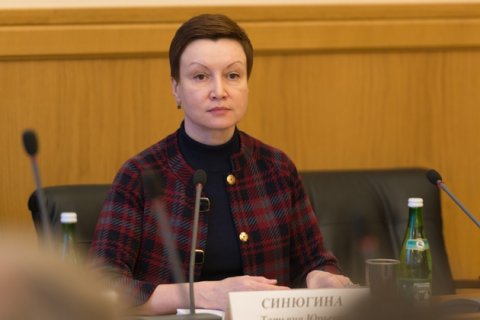On February 12th, a meeting was held at the Ministry of Education and Science of the Russian Federation on the issues of educating individuals with disabilities. The meeting was held by the Deputy Minister of Education and Science of the Russian Federation, T.Yu. Sinyugina.
T.Yu. Sinyugina stressed that the creation of the necessary environment for providing education, training, and rehabilitation to children with disabilities is a priority area of work for the Russian Ministry of Education and Science. The Deputy Minister reported on the results of work in this field.
“Since 2016, the number of students who have the opportunity to complete pre-school education programs in pre-school organizations through programs of inclusion has increased by 8 thousand. Today, 470 thousand students are receiving an education in the pre-school system. Over the last two years, the number of students with disabilities in inclusive classes has grown by almost 9.5 thousand,” says T.Yu. Sinyugina.
Tatiyana Yuryevna explained that it is not just the number of students with disabilities that is important, it is “very important that the children have a truly high-quality education equal to their peers.”
“When we speak of efficacy and quality of education in inclusive classes, the creation of these conditions is one of our top priorities not just in general education in schools but also in professional education,” says T.Yu. Sinyugina.
Tatiyana Yuryevna noted that 2017 was the “year of foundation” for a network of academic resource centers for training individuals with disabilities (ARC). In 2018, the ARC network will expand.
The Director of the Department for Public Policy on Higher Education of the Russian Ministry of Education and Science A.B. Sobolev offered more information at the meeting on the development of ARC. He clarified that in 2017, 13 ARCs were founded at locations under the jurisdiction of the Russian Ministry of Education and Science. Each ARC has a “zone of responsibility” – a list of entities in the Russian Federation regions in which the ARC organizes work in increasing the accessibility of higher education for individuals with disabilities.
A.B. Sobolev informed the audience that agreements on increasing the accessibility and quality of higher education for individuals with disabilities were signed with 190 universities.
The Director of the Department for Department of State Policy in the Field of Protection of the Rights of Children of the Russian Ministry of Education and Science E.A. Silyanov spoke on participation of the Federal Resource Centers (FRC) in issues of educating individuals with disabilities. He explained that the main goals of FRCs are consolidation, implementation, and spreading of modern techniques and teaching knowledge on educating individuals with disabilities, as well as expert, informational and consultation support of entities of the Russian Federation in developing regional systems of helping individuals with disabilities.
The participants of the meeting also discussed the necessity of amending the regulations on the psychological, medical, and pedagogical commission and the FRCs’ complex support of children with disorders of the musculo-skeletal system and eyesight.
The participants also approved the members of work groups under the Council of the Minister of Education and Science of the Russian Federation on Issues of Educating Individuals with Disabilities and the Council’s plan for 2018.
Reference Information
Within the realization of the State Program of the Russian Federation “Accessible Environment 2011-2020”, approved by Decision No.1297 of the Russian Federation Government as of December 1, 2017 a network of Academic Resource Centers for the education of individuals with disabilities was formed. In the higher education system, ARC serves as a resource that universities can use to increase the accessibility and quality of education for individuals with disabilities.




